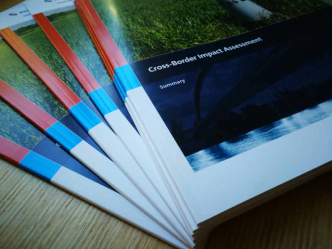Social security: illness and disability
Introduction
Any person working in the Netherlands and who becomes sick or occupationally disabled then falls under the Dutch systems for illness (article 7:629, Dutch Civil Code) and occupational disability (Work and Income according to Labour Capacity Act). This also applies for any frontier worker residing in another EU Member State. Because social security is a national authority, Member States are entitled to design and change their own social security systems. Much more so than in other Member States, the Dutch government is increasingly integrating concepts such as privatization, activation, and reintegration into its social security. The current EC Regulations 883/2004 and 987/2009, which coordinate cross-border Social Security, have been in place since May 2010 and devote very little attention to reintegration.
This research, as a component of ITEM’s cross-border impact assessments 2016, focuses on the Dutch short-term and long-term incapacity for work (illness and occupational disability) and the effects of this system in a cross-border situation. The reason for this choice is that the Dutch systems put in place to support these two social security risks have been fundamentally restructured over the past two decades, and additionally, they differ significantly from the systems in other Member States. This contrast between the Dutch rules (many, strict, complicated, and primarily nationally oriented) and the European rules (very few and not specific) in cross-border working situations quickly leads to problems or gaps for the EU worker and his or her employer. The focus on reintegration (stimulus philosophy) and the shift of the responsibility for reintegration to the employer and employee definitely has its positive sides, but at present is not always workable or comprehensible for foreign employers, employees, and the relevant institutions.
Situation at the border
Neither the Dutch government (legislator and implementing body the UWV) nor the European legislator (through the coordination regulations) makes any distinction for border areas or frontier workers. This means that the Dutch legislation applies for not only German and Belgian frontier workers, but, for example, a Spanish or Polish worker doing work in the Netherlands, whether on a temporary or permanent basis. In practice, however, it appears that the approach to reintegration for frontier workers who commute daily, or to employees from Member States farther away, is completely different, and is not currently regulated adequately by either Dutch or European rules. For the purposes of this research, ‘border area’ is defined as the entire border between the Netherlands and other Member States.
The core principles that this research assumes are: the free movement of persons, non-discrimination, sustainable development within Europe, the Europe 2020 strategy, and the loyal cooperation between Member States.
Research has shown that the Dutch systems for illness and occupational disability can (and possibly do) impede the free movement of labour and also lead (or could lead) to legal uncertainty, while also (potentially) threatening social cohesion in Europe. Significant problem areas include: insufficient knowledge of the continued payment of salary obligation (of max. 104 weeks), insufficient knowledge of the reintegration obligation on the part of employee and employer both during illness and during occupational disability, the heavy financial and administrative requirements of the reintegration obligation for both employer and employee, the lack of a contact point at the official government level during the period of continued payment of salary during illness, the national approach to medical exams and the non-acceptance of medical reports from abroad, the language and structure of the medical reports, the lack of a transparent foreign policy of the UWV, and the absence of European rules (in the Regulations) for reintegration upon illness and occupational disability.
These problem areas can have an obstructive effect for both the frontier workers affected by them and their employers, because they lead to the following negative effects: the employee receives no salary or is paid late, the employee does not receive adequate support during reintegration and is penalized financially by the UWV or the employer for this lack of support, the employer is financially sanctioned by the UWV (in the form of an extended obligation for continued payment of salary), and employer and employee become embroiled in a conflict concerning their obligations under Dutch law. For these reasons, employers may be tempted to eschew employees in a cross-border situation due to the complications and confusion on their social security protections under Dutch law.
Multiple measures will be required to prevent, or at least minimize, the obstacles in the application of the Dutch rules of illness and occupational disability to frontier workers. Potential solutions can be found in the introduction of a cross-border impact test, the drafting of medical reports that are applicable in other Member States, allowing acceptance of foreign medical reports, transparent policy rules on the part of the UWV, more European rules for reintegration (both benefits and dispensations), the reduction of the continued payment of salary obligation, more bilateral and multilateral arrangements, cross-border networks between government bodies, and an improved knowledge of the Dutch legislation through better information provision by the Dutch government.

